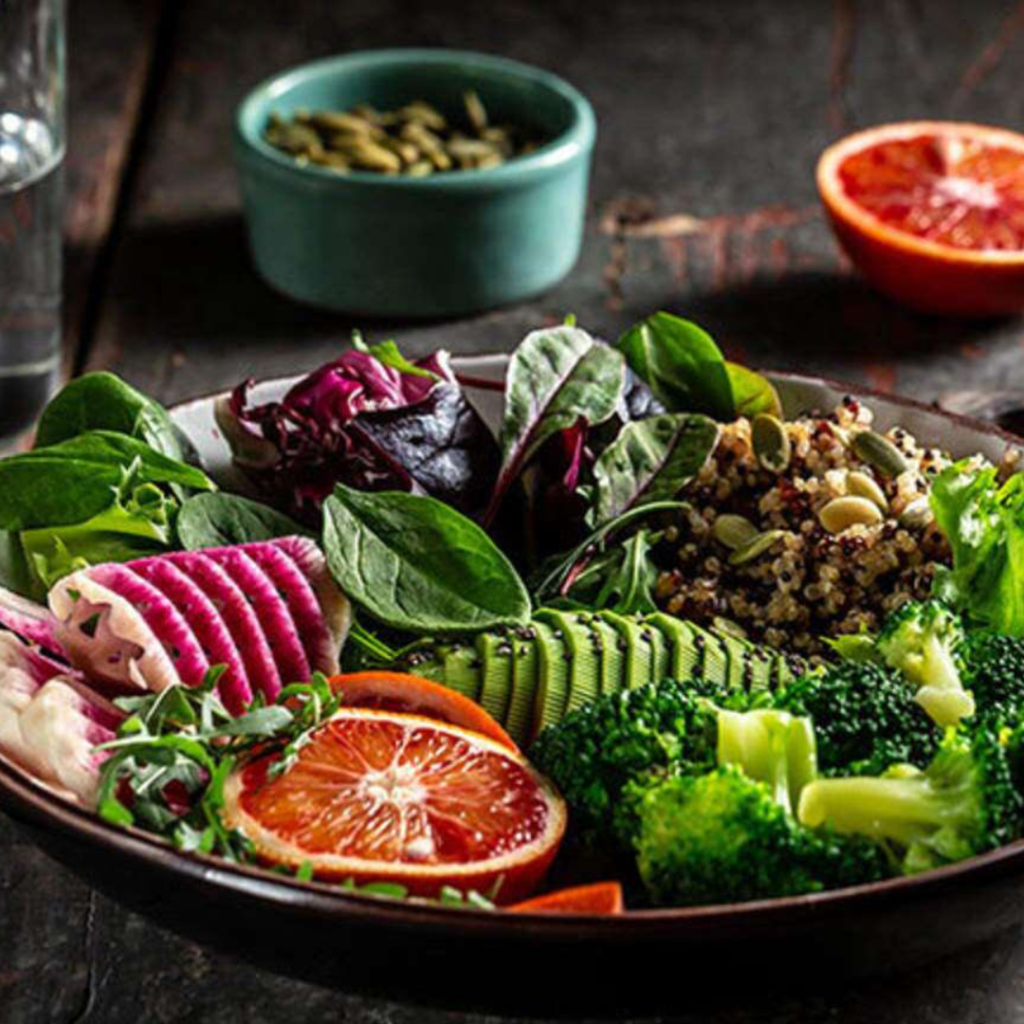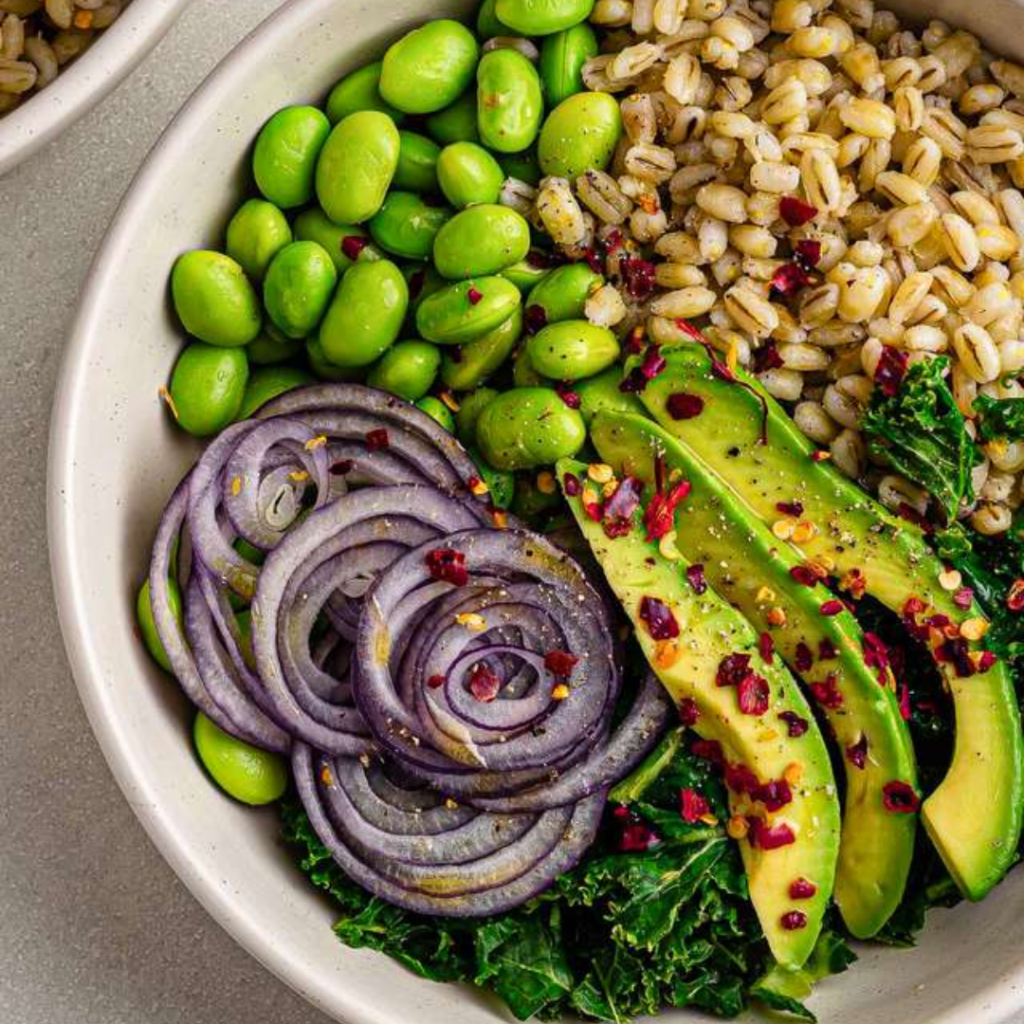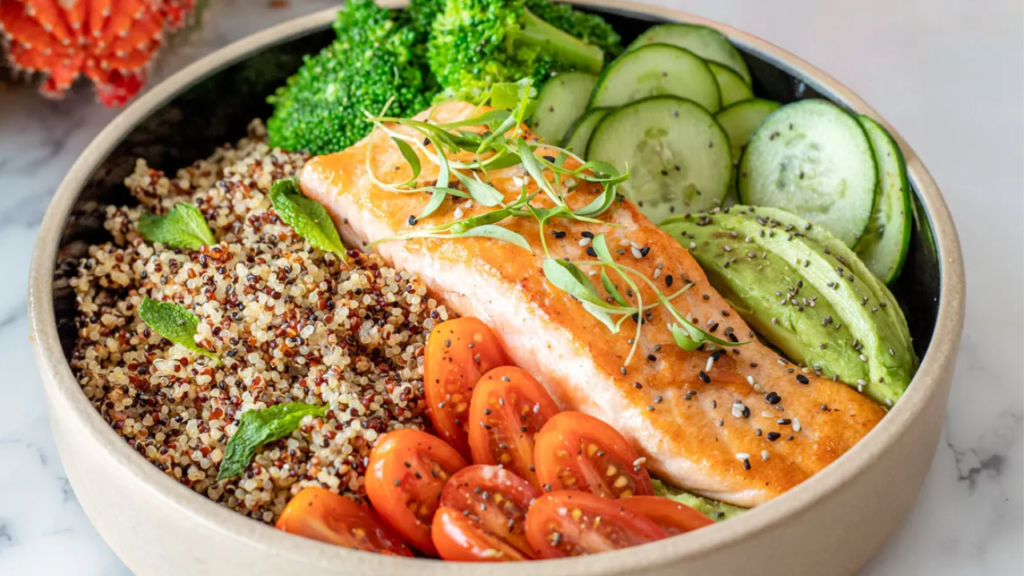Looking to boost your protein intake with delicious, nutrient-packed foods? Whether you’re aiming for weight loss, muscle building, or just overall health improvement, incorporating high-protein foods into your diet is the way to go.
In this blog post, we’ll explore a variety of low-calorie vegetarian options that will help you reach your protein goals while satisfying your taste buds. Let’s dive in and discover the top 10 protein-rich foods that can support your journey to a healthier lifestyle!
Low-calorie high protein foods vegetarian
Looking for low-calorie, high-protein options in a vegetarian diet? Look no further! Plant-based foods can be excellent sources of protein without packing on the calories.
Start your day with a hearty breakfast of Greek yogurt topped with nuts and seeds for a protein-packed meal that will keep you full until lunchtime.
For lunch, whip up a colorful salad filled with chickpeas, quinoa, and edamame to get that extra protein boost while keeping things light.
Snack time? Reach for some roasted chickpeas or hummus paired with crunchy veggies to curb cravings and add more plant-based protein to your day.
Incorporating these low-calorie, high-protein vegetarian options into your meals will not only support your health goals but also add variety and flavor to your diet.
High-protein foods vegetarian
Are you following a vegetarian diet and looking to increase your protein intake? There are plenty of plant-based options that are high in protein and low in calories.
Incorporating these into your meals can help support weight loss, muscle building, or even weight gain goals.
Some top high-protein foods for vegetarians include tofu, tempeh, edamame, lentils, chickpeas, quinoa, Greek yogurt, nuts and seeds like almonds and chia seeds.
These foods not only provide ample amounts of protein but also offer essential nutrients like fiber, vitamins, and minerals.
Whether you’re aiming for weight loss or muscle building as a vegetarian, focusing on incorporating these high-protein foods into your daily meals can make a significant difference in reaching your health goals.
So next time you’re meal planning or grocery shopping as a vegetarian seeking more protein-rich options – remember these delicious plant-based choices!
Top 10 protein foods

Looking to boost your protein intake with some delicious foods? Here are the top 10 high-protein options to incorporate into your daily diet:
1. Chicken breast: Lean and versatile, chicken breast is a go-to protein source for many.
2. Greek yogurt: Packed with probiotics and protein, Greek yogurt makes for a nutritious snack or breakfast option.
3. Lentils: These legumes are not only high in protein but also rich in fiber, making them a filling choice.
4. Tofu: A plant-based favorite, tofu is a great meat alternative that can be used in various dishes.
5. Quinoa: This ancient grain is not only a complete protein but also gluten-free and packed with nutrients.
6. Eggs: A powerhouse of nutrition, eggs are an easy and affordable way to add protein to your meals.
7. Salmon: Rich in omega-3 fatty acids and high-quality protein, salmon is a fantastic choice for both muscle building and overall health.
8. Cottage cheese: Low in fat and high in casein protein, cottage cheese is perfect for satisfying cravings while keeping you full longer.
9. Almonds: Not just a tasty snack, almonds are also surprisingly rich in protein compared to other nuts.
10. Chickpeas: Whether roasted as a crunchy snack or blended into hummus, chickpeas are an excellent vegetarian source of protein that’s also budget-friendly.
High-protein foods for weight loss
Are you looking to shed some pounds while still keeping your protein intake high? Foods high in protein have the power to drastically alter weight reduction outcomes.They not only help you feel full and satisfied but also support muscle growth and repair.
Opt for lean sources of protein like chicken breast, fish, tofu, beans, and lentils. These options are low in calories but high in protein, making them ideal for weight loss diets.
Incorporating these foods into your meals can help boost your metabolism and burn more calories throughout the day.
Consider adding Greek yogurt, eggs, quinoa, and edamame to your diet as well. These nutrient-dense foods provide a good amount of protein without packing on extra calories.
Pairing them with fiber-rich vegetables can create filling and nutritious meals that support your weight loss goals.
By focusing on high-protein foods for weight loss, you can fuel your body with the nutrients it needs while promoting fat loss.
So next time you’re planning your meals, think about incorporating these protein-packed options to support your journey towards a healthier weight!
High protein foods for muscle building
When it comes to building muscle, protein is a crucial component in your diet. Incorporating high-protein foods can help support muscle growth and repair post-workout.
Some excellent options for high-protein foods that aid in muscle building include lean meats such as chicken, turkey, and beef. These animal sources are rich in essential amino acids necessary for muscle recovery.
For those following a vegetarian or vegan diet, plant-based options like tofu, tempeh, lentils, and chickpeas are great sources of protein. They provide the building blocks needed to support muscle development.
Greek yogurt and cottage cheese are also fantastic choices for individuals looking to increase their protein intake while benefiting from the calcium content that supports bone health.
Including a variety of high-protein foods in your meals throughout the day can help ensure you’re meeting your body’s needs for optimal muscle growth and strength.
High protein foods for weight gain

Looking to pack on some extra pounds in a healthy way? Incorporating high-protein foods into your diet can help you achieve your weight gain goals.
Protein is essential for building muscle mass and supporting overall body functions.
Opt for protein-rich options like lean meats such as chicken, turkey, or beef.
These sources not only provide ample protein but also essential nutrients like iron and zinc that are beneficial for weight gain.
Including dairy products like Greek yogurt, cottage cheese, and milk can also boost your daily protein intake.
These items are not only convenient but also versatile in recipes – from smoothies to casseroles.
For plant-based eaters, legumes and beans such as lentils, chickpeas, and black beans are excellent choices.
They offer a good amount of protein along with fiber which aids in digestion.
Nuts and seeds like almonds, chia seeds, and pumpkin seeds contain healthy fats along with protein – perfect for adding calories to your diet without compromising on nutrition.
Highest protein foods per 100g
When it comes to high protein foods per 100g, there are some top contenders that can help you meet your daily protein needs. One of the most protein-packed options is chicken breast, providing around 31 grams of protein per 100g serving.
Following closely behind is turkey breast with approximately 30 grams of protein in the same serving size.
For those following a plant-based diet, lentils are an excellent choice as they offer about 9 grams of protein per 100g. Tofu is another great vegetarian option, offering roughly 8 grams of protein in the same serving size.
If you’re looking for a seafood option, tuna fish provides around 25 grams of protein per 100g serving. Salmon is also a fantastic choice with approximately 20 grams of protein in the same amount.
These high-protein foods can be easily incorporated into your meals to help you reach your daily protein goals and support muscle recovery and growth.
Highest protein foods chart
Looking for a convenient way to track your protein intake? A highest protein foods chart can be your go-to tool. This visual guide showcases various foods ranked by their protein content per serving size, making it easy to plan meals that meet your dietary needs.
From animal sources like chicken breast and Greek yogurt to plant-based options such as tofu and lentils, the chart offers a diverse range of high-protein choices for vegetarians and meat-eaters alike.
Whether you’re aiming to lose weight or build muscle, knowing which foods pack the most protein per 100g can help you make informed decisions about your nutrition.
By referring to a highest protein foods chart regularly, you can ensure that you’re incorporating enough protein-rich items into your diet each day.
So next time you’re meal prepping or grocery shopping, consider consulting this handy resource to optimize your protein consumption effortlessly.
Conclusion
As we wrap up our exploration of high-protein foods, it’s clear that incorporating these nutrient-packed options into your diet can offer a range of benefits.
From supporting weight loss and muscle building to aiding in overall health and wellness, protein-rich foods are essential for a balanced diet.
By including a variety of high-protein vegetarian options like lentils, chickpeas, tofu, and quinoa, you can easily meet your daily protein needs while enjoying delicious meals.
Don’t forget about nuts, seeds, and Greek yogurt as convenient sources of protein throughout the day.
Experimenting with different recipes and meal combinations is key to keeping your high-protein diet interesting and sustainable.
Whether you’re looking to shed some pounds or bulk up with muscle mass, prioritizing protein intake is crucial for reaching your fitness goals.
So next time you’re planning your meals or grabbing a snack on the go, remember the power of high-protein foods in fueling your body effectively.
What foods are highest in protein?
When it comes to high-protein foods, there are plenty of options to choose from. Some of the top contenders include poultry like chicken and turkey, which offer a substantial amount of protein per serving.
Fish such as salmon and tuna are also excellent choices for those looking to boost their protein intake.
Incorporating a variety of these high-protein foods into your meals can help you meet your daily protein needs easily and deliciously without feeling restricted or bored with your choices.
What are top 10 high protein foods daily?
Looking to up your protein intake with the top 10 high-protein foods? Look no further! Let’s dive into some delicious options that can help you reach your daily protein goals.
Starting off strong, eggs are a fantastic source of complete protein, perfect for breakfast or any meal. Next up, Greek yogurt packs a powerful protein punch while also being rich in probiotics for gut health.
For all the plant-based eaters out there, tofu is an excellent choice with its versatility and high protein content. Lentils and chickpeas are legume heroes, offering a hefty dose of both protein and fiber in every serving.
Lean beef is rich in iron and zinc along with ample amounts of quality proteins. Almonds make for a convenient and satisfying snack loaded with both healthy fats and proteins.
Incorporating these top 10 high-protein foods into your daily meals will not only keep you feeling satisfied but also support your overall health and fitness goals.
What are 20 protein foods?
Looking to boost your protein intake but tired of the same old chicken and eggs? Here are 20 high-protein foods to add variety to your diet.
Start with animal sources like lean beef, turkey, salmon, and Greek yogurt. These options offer a substantial amount of protein per serving.
For plant-based choices, consider lentils, chickpeas, quinoa, and edamame. These vegetarian sources pack a punch when it comes to protein content.
Tofu and tempeh are excellent meat alternatives that can be used in various dishes for added protein. Plus, they absorb flavors well!
Nuts and seeds such as almonds, chia seeds, and pumpkin seeds make great snacks or toppings for salads and yogurts. They’re not only tasty but also rich in protein.
Don’t forget about dairy products like cottage cheese and milk! They are convenient options for adding extra protein to your meals throughout the day.
How to get 100g of protein a day?
Want to ensure you’re hitting your daily protein target? Here are some simple tips on how to get 100g of protein a day.
Start your day with a high-protein breakfast. Options like Greek yogurt, eggs, or a protein smoothie can kickstart your protein intake.
Experiment with different types of protein-rich foods to keep things interesting. Quinoa salad with chickpeas one day, grilled salmon the next!
Consider using protein supplements like whey powder or plant-based proteins if you find it challenging to meet your daily goal through whole foods alone.
By being mindful of your choices and planning ahead, reaching 100g of protein a day can be both achievable and delicious!

How can I eat more protein?
Looking to boost your protein intake? It’s easier than you think! Start by incorporating high-protein foods into every meal and snack. Opt for Greek yogurt with nuts or seeds for breakfast, a quinoa salad for lunch, and tofu stir-fry for dinner.
Get creative in the kitchen by experimenting with different sources of protein like lentils, chickpeas, and edamame. Whip up a smoothie with protein powder or enjoy a handful of roasted chickpeas as a crunchy snack.
Meal prepping can also help you stay on track with your protein goals. Prepare meals ahead of time that are packed with lean proteins like chicken breast, fish, or turkey. Don’t forget about plant-based options such as tempeh, seitan, and soy products.
Remember to listen to your body’s hunger cues and fuel it with nutritious foods that will keep you satisfied throughout the day. With these simple tips and tricks, increasing your daily protein intake can be both delicious and effortless!
How to eat enough protein?
Eating enough protein is crucial for overall health and well-being. To ensure you are getting an adequate amount of protein in your diet, incorporate a variety of high-protein foods such as lean meats, fish, eggs, dairy products, legumes, nuts, seeds, and whole grains into your meals.
By planning your meals ahead of time and including protein-rich snacks throughout the day, you can easily meet your daily protein needs.
Don’t forget to stay hydrated and listen to your body’s hunger cues to determine when you need to refuel with a high-protein snack or meal.
Remember that everyone’s protein requirements may vary based on factors like age, gender, activity level, and goals.
Consulting with a nutritionist or dietitian can help tailor a personalized plan to ensure you are meeting your specific protein needs.

